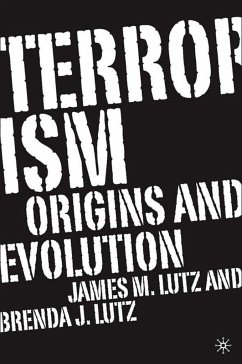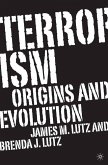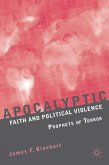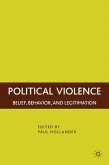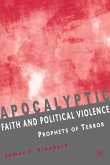Terrorism is not a new phenomenon but has been present for over two thousand years. It has been used to advance ethnic, religious, and ideological goals; it has been used by dissidents and states to maintain control; it has been used at times as a means for attaining or maintaining power for its own sake. Terrorism has often appeared as a response to the intrusion of outside groups in established societies. This book places terrorism in a historical and analytical context. It is a comparison of terrorist groups over time, noting both similarities and differences. It will also contribute to discussions of the underlying causes of terrorism by providing a broader context than is usually attempted. It is important to put recent terrorist events in an appropriate context and to learn what history has to offer for dealing with this type of political violence.
'An educational, timely, and invaluable contribution to our understanding of contemporary terrorism. Whilst 9-11 marked the emergence of the new terrorism and put the spotlight on radical Islam, this study restores a balanced understanding to an age-old, historical social phenomenon. Using a broad, historical perspective, the authors remind us that terrorism will continue because it has worked in the past, and that it cannot be prevented at the present time, only contained. A must-read for everyone interested in terrorism and counterterrorism.'
- Andrew T H Tan, Senior Lecturer, King's College London / Joint Services Command and Staff College, UK
"Terrorism: Origins and Evolution isa useful and important contribution to the literature.It explores why previous 'pat' answers about the origins and progress of terrorism were wrong andhow we might search for greater historical understanding of this contemporary set of threats. It can be read profitably equally byexperts and scholars new to the subject."
- Christopher S. Peebles, Special Advisor for Centers and Institutes, Office of the Vice President for Research, and Professor of Anthropology, Indiana
"Offers a succinct, context-rich focus to the wide array of terrorist groups existing throughout the world's history...The book's major strengths are its readability and accessibility to nonexperts, its comprehensiveness, and its inclusion of a number of different groups throughout differentperiods and locations. It is rare to find an accessible cook as complete, and yet succinct, as this one, and the authors present the information in an exceedingly engaging manner. The presentation of summary tables will be especially useful to faculty for presenting lectures on the historical development and evolution of these groups, particularly because the tables are essentially outlines of the preceding discussions. The book also ends with a useful bibliography." - Erica Chenoweth,International Criminal Justice Review
- Andrew T H Tan, Senior Lecturer, King's College London / Joint Services Command and Staff College, UK
"Terrorism: Origins and Evolution isa useful and important contribution to the literature.It explores why previous 'pat' answers about the origins and progress of terrorism were wrong andhow we might search for greater historical understanding of this contemporary set of threats. It can be read profitably equally byexperts and scholars new to the subject."
- Christopher S. Peebles, Special Advisor for Centers and Institutes, Office of the Vice President for Research, and Professor of Anthropology, Indiana
"Offers a succinct, context-rich focus to the wide array of terrorist groups existing throughout the world's history...The book's major strengths are its readability and accessibility to nonexperts, its comprehensiveness, and its inclusion of a number of different groups throughout differentperiods and locations. It is rare to find an accessible cook as complete, and yet succinct, as this one, and the authors present the information in an exceedingly engaging manner. The presentation of summary tables will be especially useful to faculty for presenting lectures on the historical development and evolution of these groups, particularly because the tables are essentially outlines of the preceding discussions. The book also ends with a useful bibliography." - Erica Chenoweth,International Criminal Justice Review

